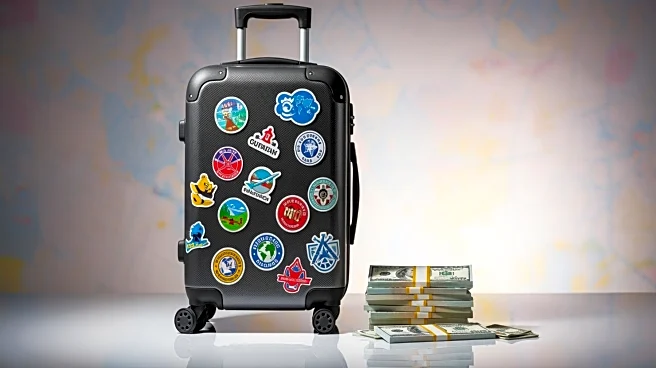What's Happening?
Economic pressures are influencing U.S. consumer travel behavior, as revealed by Phocuswright's U.S. Consumer Travel Report 2025. While the number of trips remains stable, average annual spending on travel has
declined. Consumers are increasingly cost-conscious, with younger travelers leveraging online travel agencies for better price comparisons. The report highlights a shift towards road trips over air travel if airfare becomes too expensive. Additionally, there is a growing preference for indirect booking channels, such as OTAs, indicating a demand for value and comparison options. These changes suggest a more deliberate and price-sensitive approach to travel planning.
Why It's Important?
The shift in consumer travel behavior has significant implications for the travel industry. As travelers become more price-sensitive, companies may need to adjust their pricing strategies and offer more competitive deals to attract customers. The increased use of online travel agencies for price comparisons could lead to greater competition among service providers. Additionally, the preference for road trips over air travel could impact the airline industry, potentially leading to reduced demand for flights. This trend also highlights the importance of technology in travel planning, as consumers increasingly rely on digital tools to make informed decisions.
Beyond the Headlines
The evolving travel behavior reflects broader economic challenges faced by consumers, such as inflation and rising living costs. These factors are prompting individuals to prioritize spending on essential goods and services over leisure activities. The travel industry may need to innovate and offer more flexible and affordable options to meet changing consumer needs. Furthermore, the reliance on technology for travel planning raises questions about digital accessibility and the digital divide, as not all consumers may have equal access to online resources.











